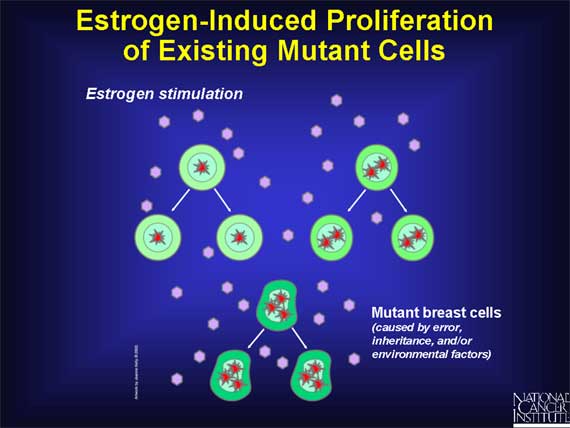|
Although estrogen does not appear to directly cause the DNA mutations that
trigger the development of human cancer, estrogen does stimulate cell
proliferation.
Therefore, if one or more breast cells already possesses a DNA mutation that
increases the risk of developing cancer, these cells will proliferate (along
with normal breast cells) in response to estrogen stimulation. The result will
be an increase in the total number of mutant cells, any of which might
thereafter acquire the additional mutations that lead to uncontrolled
proliferation and the onset of cancer.
In other words, estrogen-induced cell production leads to an increase in the
total number of mutant cells that exist. These cells are at increased risk of
becoming cancerous, so the chances that cancer may actually develop are
increased.

< Previous | Index | Next Slide > |